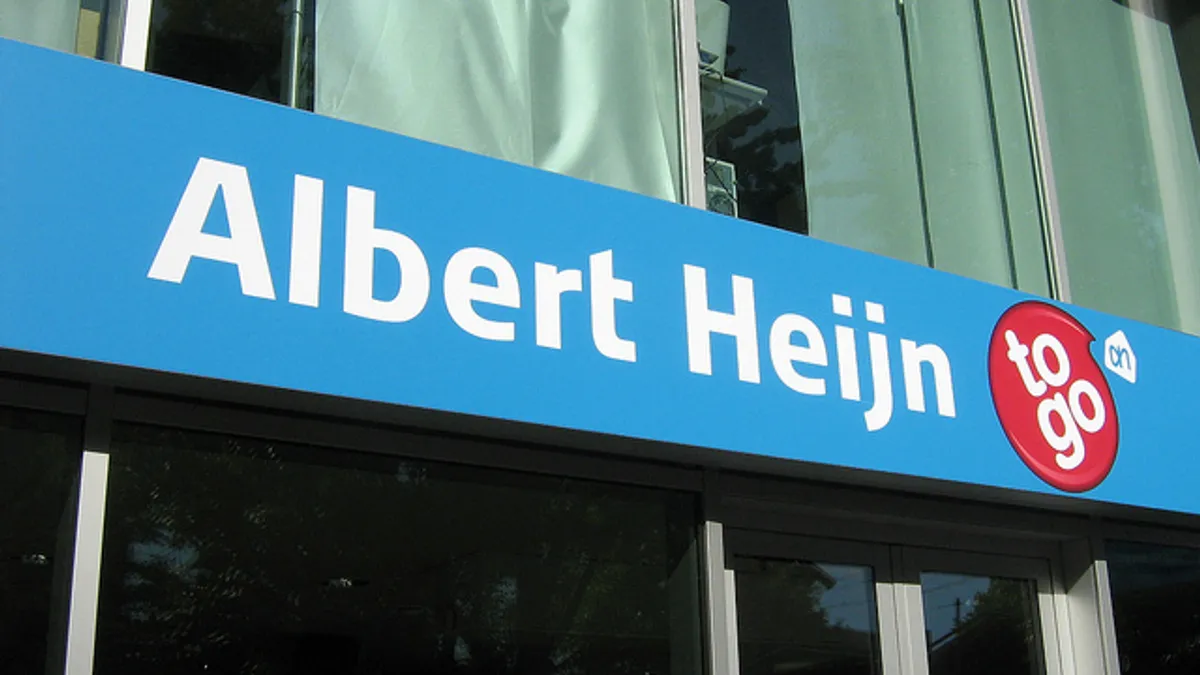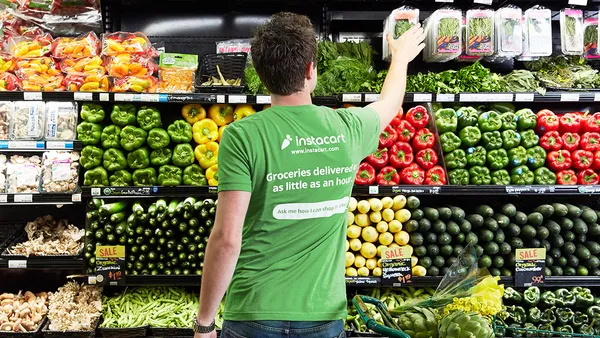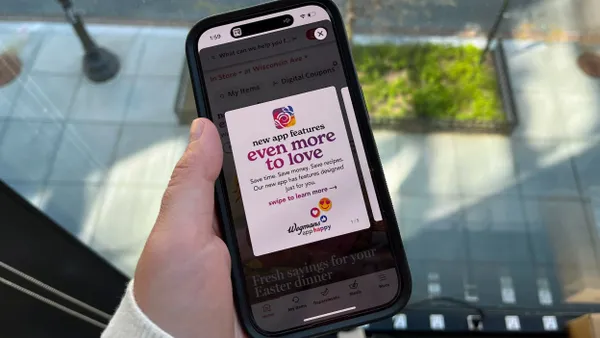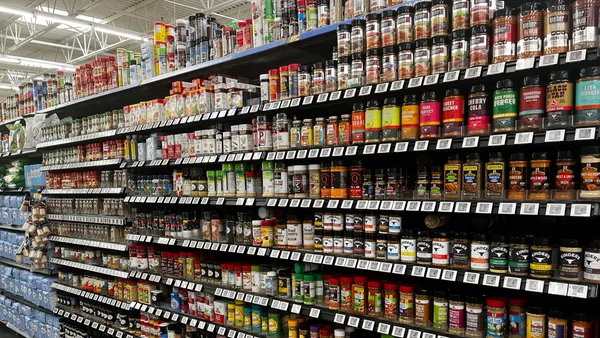Dive Brief:
- Ahold Delhaize has partnered with Hanshow Technology to add in-store technology to its European brands in the Netherlands, Belgium, Luxemburg, Greece, Czech Republic, Serbia and Romania, according to a press release emailed to Grocery Dive.
- The first step will involve adding electronic shelf labels, which have already been piloted at Delhaize Belgium and Albert Heijn in the Netherlands, that allow users to pay with mobile phones or NFC cards.
- The partners are also launching a Joint Innovation Lab to create in-store technologies like frictionless payment, in-store navigation and in-store advertising.
Dive Insight:
With Europe as its proving ground, there is potential for Ahold Delhaize to bring this technology stateside to its banners where several retailers, from Albertsons to Kroger, are already adopting a variety of digital checkout solutions.
In the U.S., Kroger is leading the charge with digital shelf technology. It installed Kroger Edge, a digital shelf system in partnership with Microsoft, in 200 stores that displays pricing, advertisements and nutritional information. As users walk down the aisles, it also communicates with their smartphones and highlights products that they’ve added to their digital shopping lists in an attempt to provide a customized shopping experience.
Electronic shelf tags offer a number of benefits to retailers, primarily when it comes to flexibility. The shelves can resolve issues with missing tags or prices that haven’t been updated and when it comes to the task of changing price tags, it can save substantial labor power. In lieu of swapping out paper tags or printing new tags, the digital shelf displays can be updated much quicker.
The technology also opens the door to dynamic pricing, which allows for price changes multiple times a day potentially. For example, the price tag could switch depending on demand or availability. Produce and other food items nearing their expiration date could quickly pivot to sell faster. This has been cited by some as a way to help cut down on the amount of food waste produced at supermarkets.
Electronic shelf tags have potential applications for self-checkout as well, allowing customers to avoid waiting in line. Users can scan the shelf tag with their mobile phone, which is also integrated with their preferred payment method. Reducing friction in a self-checkout process is key for consumer adoption, with many customers finding self-checkout services frustrating because they largely are required to take over the entire cashier role. The shelf tags alleviate some of this friction by streamlining the scanning process and preventing the shopper from having to still go through the checkout lane.
Several retailers have already adopted a variety of digital checkout solutions including Albertson’s self-checkout stations and Amazon’s cashierless Amazon Go stores. Giant is also piloting self-checkout technology with its partnership with Silicon Valley’s startup Grabango. The technology uses AI and computer vision to see what customers are picking up as they shop.












